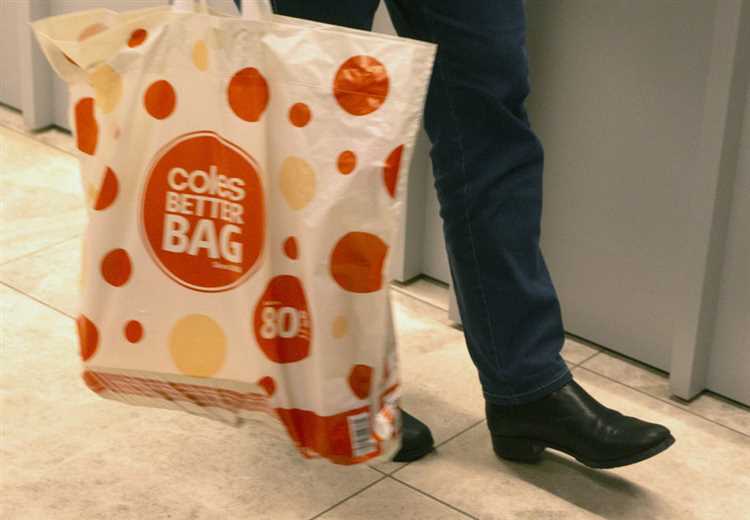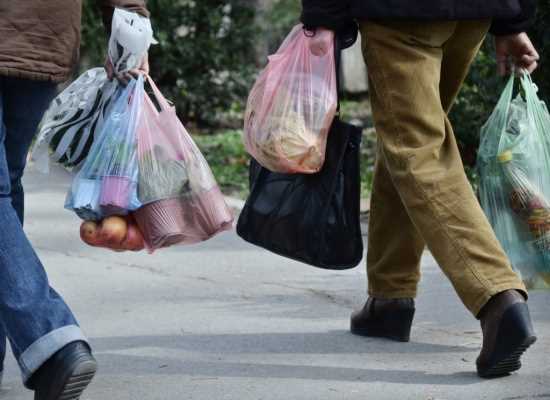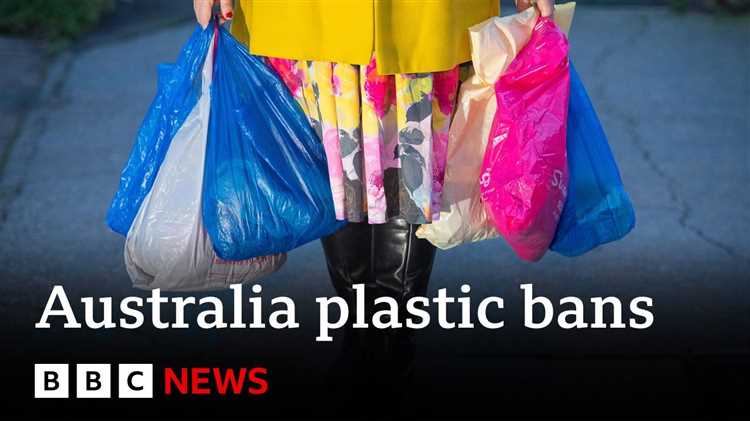In recent years, the world has become more aware of the negative impact of plastic bags on the environment. Many countries have taken steps to reduce their usage, but what about Australia?
Australia, known for its breathtaking landscapes and diverse wildlife, has also been a major contributor to the global plastic bag problem. However, in recent years, the country has made significant efforts to tackle this issue and reduce plastic bag consumption.
One of the most notable changes in Australia’s approach to plastic bags was the introduction of the “ban on lightweight plastic bags” in various states and territories. This ban, which came into effect in 2018, aimed to reduce plastic bag usage and encourage the adoption of more sustainable alternatives.
Since the ban, major retailers and supermarkets across Australia have implemented various strategies to comply with the regulations. Some stores have switched to offering reusable bags made from recycled materials, while others have encouraged customers to bring their own bags or purchase reusable ones at a nominal fee.
Despite these efforts, there are still debates about the effectiveness of the ban and the impact it has had on plastic bag usage in the country. Some argue that the ban has had a positive effect, with fewer plastic bags being used and fewer ending up in landfills or polluting waterways. Others, however, question whether the ban has led to a significant reduction in overall plastic consumption.
In conclusion, while Australia has taken steps to address the issue of plastic bag usage, the ban on lightweight bags is just one aspect of a broader effort to reduce plastic waste. The country continues to explore innovative solutions and initiatives to create a more sustainable future and minimize its impact on the environment.
- Is Australia Still Using Plastic Bags?
- Plastic Bag Ban in Australia
- The Plastic Bag Ban Movement
- State and Territory Bans
- Alternatives to Plastic Bags
- Impact of Plastic Bags on the Environment
- 1. Pollution of Land and Water
- 2. Harm to Wildlife
- Questions and answers
- Are plastic bags still being used in Australia?
- What measures have been taken to reduce the use of plastic bags in Australia?
- Have any states or territories in Australia completely banned plastic bags?
- What are the environmental impacts of using plastic bags?
Is Australia Still Using Plastic Bags?
Plastic bags have long been a staple of shopping in Australia, but in recent years, the country has taken significant steps to reduce their use. In 2017, two of Australia’s largest supermarket chains, Coles and Woolworths, announced that they would be phasing out single-use plastic bags.
This move was met with mixed reactions from the public. While some people praised the decision as a positive step towards reducing plastic waste, others were frustrated by the inconvenience of having to bring their own reusable bags or purchase them at the checkout. There were even reports of backlash and boycotts against the supermarkets.
Despite the initial resistance, the phasing out of plastic bags has been relatively successful. According to a study conducted by the National Retail Association, the number of single-use plastic bags used by shoppers dropped by 80% within just three months of the ban being implemented.
Since then, other states and territories in Australia have followed suit, implementing their own bans on single-use plastic bags. However, the specific regulations vary from region to region. For example, in Victoria, New South Wales, and Western Australia, the ban only applies to large retailers, while in South Australia, Tasmania, the Northern Territory, and the Australian Capital Territory, the ban applies to all retailers.
Despite the progress made, there are still concerns that plastic bags continue to be used in Australia. Some smaller retailers may still provide plastic bags to their customers, and there is also the issue of thicker plastic bags, known as “reusable” bags, which are still commonly used. These bags are often marketed as more environmentally friendly, but studies have shown that they may still contribute to pollution and harm wildlife.
Overall, while Australia has made significant progress in reducing the use of plastic bags, there is still work to be done. Continued efforts to educate the public about the importance of reducing plastic waste and promoting alternative options like reusable bags are crucial in order to create a more sustainable future.
Plastic Bag Ban in Australia

Plastic bags have been a major environmental concern in Australia for many years. Recognizing the damage they can cause to wildlife and ecosystems, the Australian government has made significant efforts to reduce their usage and ultimately ban them altogether.
The Plastic Bag Ban Movement
In recent years, there has been a growing public awareness about the negative impact of plastic bags on the environment. This has led to a nationwide movement advocating for a ban on single-use plastic bags.
The movement gained momentum in 2017 when major retailers, such as Coles and Woolworths, voluntarily decided to stop providing single-use plastic bags to their customers. This decision was met with both support and resistance from the public, but it marked a significant step towards reducing plastic bag usage in the country.
State and Territory Bans
Following the lead of major retailers, several Australian states and territories have introduced their own plastic bag bans. As of 2021, most states have implemented a ban on single-use plastic bags in supermarkets and other retail outlets.
In these banned areas, customers are encouraged to bring their own reusable bags or purchase alternative options, such as paper bags or reusable fabric bags. The aim is to promote a shift towards sustainable and environmentally friendly alternatives.
Some states have also extended the ban to include thicker plastic bags, as these can still have a negative impact on the environment if not disposed of correctly.
The Benefits
The ban on plastic bags in Australia has already proven to be beneficial for the environment. By reducing the usage of single-use plastic bags, less plastic waste ends up in landfills and the oceans.
It is estimated that the ban has prevented billions of plastic bags from being used and discarded each year, resulting in a significant decrease in marine pollution and wildlife entanglement.
The Future of Plastic Bag Usage in Australia
Although Australia has made great progress in reducing the use of plastic bags, there is still work to be done. Some states have yet to implement a full ban, and there is still a need for comprehensive nationwide regulation.
Furthermore, the focus should not solely be on plastic bags, but on reducing plastic waste in general. Encouraging reusable alternatives, improving recycling infrastructure, and promoting sustainable packaging are all key steps towards a more environmentally friendly future.
In conclusion, Australia has taken significant steps towards banning plastic bags, but there is still a long way to go. Continued efforts and public support are crucial in achieving a plastic-free future for the country.
Alternatives to Plastic Bags
With the growing concerns over the environmental impact of plastic bags, many individuals and businesses in Australia are actively seeking alternatives. Here are some popular alternatives to plastic bags:
| Alternative | Description |
|---|---|
| Reusable Bags | Many people are opting for reusable bags made from materials such as canvas, jute, or recycled PET fabric. These bags can be used multiple times and are often more durable than plastic bags. |
| Paper Bags | Paper bags are biodegradable and can be recycled. While they may not be as strong as plastic bags, they are a popular alternative for single-use purposes. |
| Biodegradable Bags | Biodegradable bags are made from materials that can break down naturally over time, such as starch-based plastics. These bags are designed to decompose in a composting environment. |
| Cloth Bags | Cloth bags, often made from natural fibers like cotton or hemp, are another great alternative to plastic bags. They are durable, reusable, and can be easily washed. |
| Compostable Bags | Compostable bags are made from plant-based materials that can be broken down in a composting facility. These bags provide a sustainable option for disposing of waste. |
It’s important to note that while these alternatives can help reduce the use of plastic bags, it is also crucial to educate and encourage individuals to choose reusable options and adopt sustainable practices.
Impact of Plastic Bags on the Environment

Plastic bags have become a serious environmental issue due to their widespread use and improper disposal. The convenience of plastic bags has led to a significant increase in plastic waste, causing detrimental effects on the environment.
1. Pollution of Land and Water

Plastic bags are non-biodegradable, which means they do not break down naturally and can persist in the environment for hundreds of years. When these bags are improperly disposed of, they often end up in landfills or are blown away by the wind, leading to littering. This littering can result in the pollution of land and water bodies.
Plastic bags can clog drains and sewage systems, leading to blockages and flooding during heavy rains. They also pose a significant threat to marine life when they enter water bodies. Marine animals, such as turtles, seals, and birds, can mistake plastic bags for food and end up ingesting them, which can cause suffocation and death.
2. Harm to Wildlife
The impact of plastic bags goes beyond pollution. Wildlife is particularly vulnerable to the harmful effects of these bags. Animals can become entangled in plastic bags, resulting in injuries, amputations, and even death. This is especially true for smaller animals, such as birds and mammals, who may mistake plastic bags for nesting materials or prey.
Additionally, the chemicals present in plastic bags can leach into the environment and contaminate the ecosystems in which wildlife live. This pollution can disrupt the natural balance of ecosystems and have far-reaching consequences for both wildlife and humans.
Conclusion:
Plastic bags have a significant and negative impact on the environment. It is crucial for individuals, businesses, and governments to take action to reduce their usage and promote more sustainable alternatives. By reducing our reliance on plastic bags, we can help protect the environment, wildlife, and our future generations.
Questions and answers
Are plastic bags still being used in Australia?
Yes, plastic bags are still being used in Australia, but their use has been significantly reduced in recent years.
What measures have been taken to reduce the use of plastic bags in Australia?
Australia has implemented various measures to reduce the use of plastic bags. Some retailers have introduced a voluntary ban on single-use plastic bags, while others have started charging for them. Additionally, many Australians have switched to using reusable bags or other alternatives.
Have any states or territories in Australia completely banned plastic bags?
Yes, some states and territories in Australia have completely banned single-use plastic bags. For example, South Australia banned plastic bags in 2009, followed by the Australian Capital Territory in 2011 and Tasmania in 2013. Other states and territories are also considering or planning to implement similar bans.
What are the environmental impacts of using plastic bags?
Plastic bags have significant environmental impacts. They contribute to pollution, especially in waterways and oceans, where they can harm wildlife, including marine animals and birds. Plastic bags are also made from non-renewable resources and can take hundreds of years to break down in the environment.